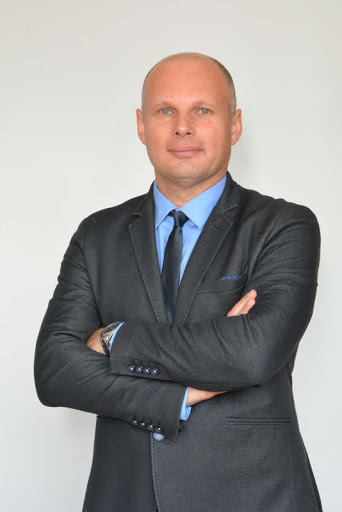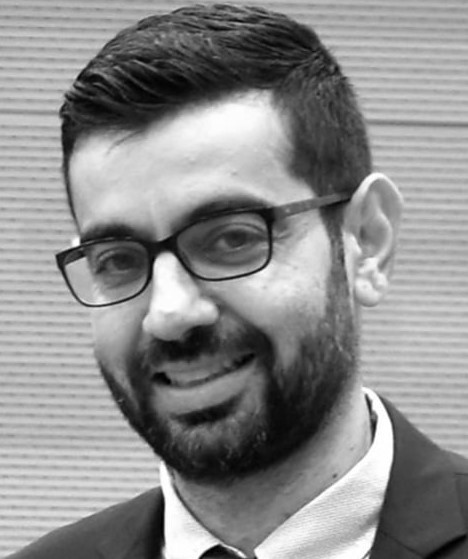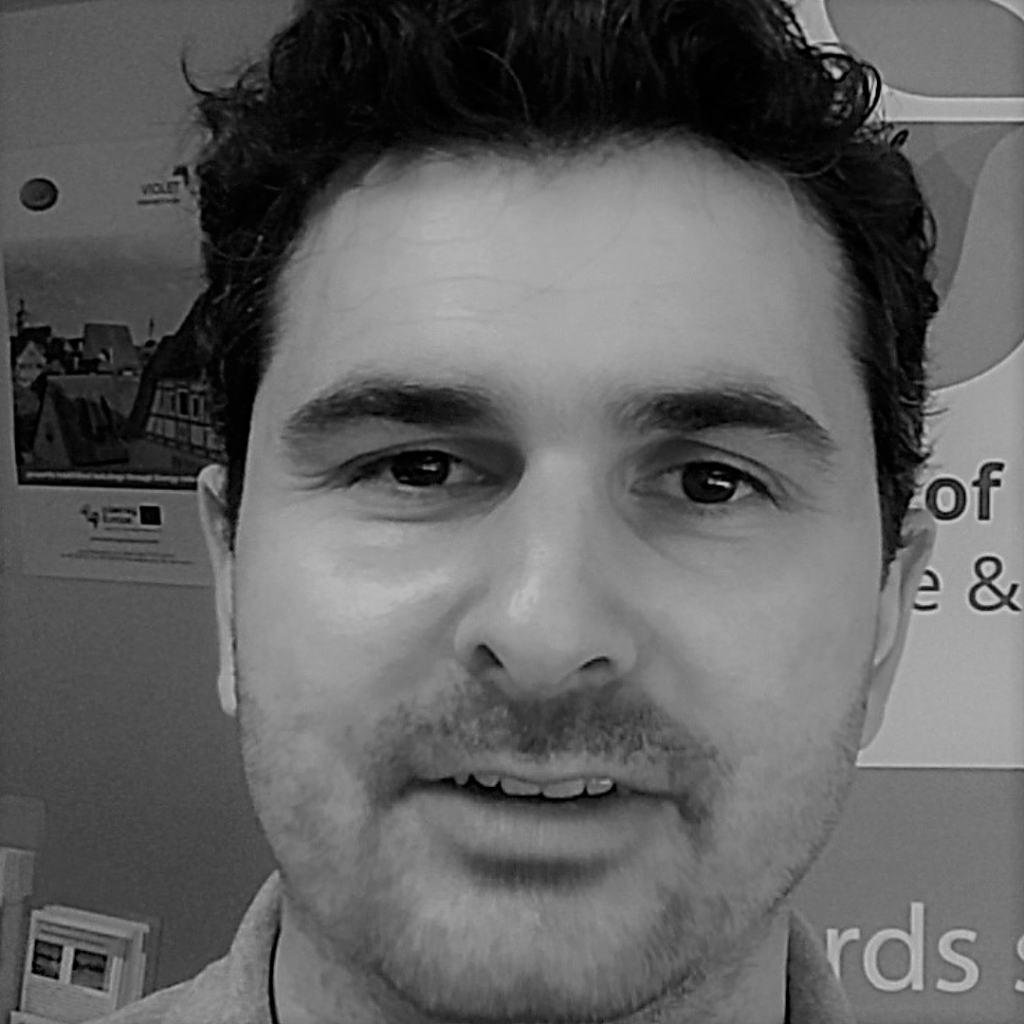Mentors presentation
Course Data Collection (acquisition and treatment)

Boštjan Krajnc, CEO of KSSENA, has 16 years of work experience in the field of RES and RUE. Initially a project technologist responsible for the design and implementation of investment projects for power technologies implementation and environmental solutions, Boštjan Krajnc became the CEO of KSSENA in 2008. Boštjan Krajnc acquired the accreditation of the European Energy Manager from the Jožef Stefan Institute under the IEE project Eurem in 2009, as well as the official license from the Building and civil Engineering Institute ZRMK for issuing Energy Performance Certificate’s.
As member of the NALAS (Network of Associations of Local Authorities of South-East Europe) task force for Energy Efficiency he built an extensive experience in working with municipalities from South- East Europe. In his professional career Boštjan Krajnc has performed more than 50 trainings on energy management, energy efficiency and renewable energy sources, financial mechanisms (ESCO) and on transferring EU Energy efficiency directive into national legislations.
Course Data monitoring and validation

Savvas Vlachos started his professional career in 2004. He is Environmental Engineer graduated from the Polytechnic School of Crete, Greece, and he acquired his master’s degree on Civil Engineering at the Polytechnic Department of the University of Cyprus. At the beginning of his career he worked as an environmental engineer and he was responsible for preparing environmental impact assessment for development projects as well as designing waste treatment facilities.
He joined the Cyprus Energy Agency in 2009 as an Energy expert and he was involved in studies, audits and certifications related with energy efficiency in buildings, Sustainable Energy Action Plans for local authorities and Renewable Energy Sources technologies. He has professional skills on Energy Auditing of buildings, street lighting, harbors airports, industries and agriculture sector. He is a qualified Energy Auditor and a Qualified Energy Expert to the official governmental registries. In addition, he is experienced for the use of technical equipment such as Infrared Camera, power analyzer, gas analyzer etc. He is also a certified trainer by the Human Resources Development Authority of Cyprus with previous experience on training for various technical subjects such as photovoltaic technology, energy efficiency of buildings, feasibility studies, project management, environmental policies and buildings energy performance certification.
Since September 2016, he is the Director of the Cyprus Energy Agency and he is responsible for the operation and the strategic development of the Agency. He has participated in more than 35 EU funded projects as project manager and he is currently the coordinator of a 2,7 M€ funded project (eea and Norway grants) on youth employment with 2017 international partners. He is also the Project Manager of a contract for Project Development Assistance (funded by the European Commission) to be provided to the Ministry of Education, Culture, Sport and Youth of Cyprus in order to trigger investments of XNUMX Μ € in upgrading XNUMX school buildings into Nearly Zero Energy Buildings. Since January XNUMX, he is also the Local Manager of the Programme Pioneers into Practice in Cyprus which is funded by the Climate – KIC and the European Institute of Innovation and Technology (EIT).

Myrto Skouroupathi is a qualified Environmental Engineer and a member of the Scientific and Technical Chamber of Cyprus. She completed her Masters of Engineering in Environmental Engineering with First Class Honors from University College London (UCL) in 2016. She has worked on community level projects on sustainable infrastructure and renewable energy.
She joined the Cyprus Energy Agency in 2017 as an Environmental Engineer and Project Manager. She is involved in European co-funded projects as a technical expert and trainer. She is managing a project to reduce youth unemployment through green jobs, a project on extreme weather event forecasting for local authorities in Cyprus, and provides technical assistance to projects on circular economy, and climate change addressing and adaptation. She is a member of EIT Climate-KIC Network of Coaches and has experience in non-formal education.

Charis Kordatos is a Forester/Environmental Scientist, he has graduated the Aristotle University of Thessaloniki in 2006 and holds MSc in Environmental Biology of the same University. He joined the Cyprus Energy Agency in 2009 and has been specialized in matters concerning the environmental impacts of installing RES in different types of landscape, the utilization of wood biomass and has been trained in the Geographic Information Systems (GIS). He has extensive experience in the realization of Environmental Impact Assessments (EIAs) regarding the installation of large-scale RES projects and he is responsible for the overall coordination and implementation of the undertaken EIAs.
He is also familiar with the Covenant of Mayors methodology for Sustainable Energy and Climate Action Plans (SECAPs) and supports local authorities for implementing sustainable actions and projects towards the climate adaptation. He is involved in the Green Public Procurement (GPP) support structure of the Agency providing guidance and training to public/local authorities and he is participating in different GPP networks and forums.
He participates in many co-funded EU and national projects as an expert and project coordinator, related to sustainable use of RES, environmental management and green policies. Since XNUMX, he is responsible for the overall management and submission of different EU programmes and initiatives in the Agency.
He has attended the training for auditors of pellet production plants according to the ENplus certification scheme (European Pellet Council – EPC), and he is a certified Auditor (no. SCC 34/12) of Environmental Management Systems to ISO 14001:2015 & ISO 19011:2011.
Indicators for adaptation to climate change

Sandra Garrigou has been assisting local authorities in drawing up their climate plans since 2008, primarly as a consultant (mission to support climate plans elaboration, at local scale, in the Hauts de-France Region, assistance to Rennes metropolitan area in its project “Covenant of Mayors”…) and then at the Institut Paris Region (organisation of technical workshops cycles on the integration of air quality in the climate plans, on monitoring and assessment in the climate plans…). Some teaching aids were produced for each workshops cycles. Sandra has developed an expertise in the field of adaptation to climate change, particularly
in the framework of a partnership agreement with ADEME (e.g. projects: organisation of territorial workshops to raise awareness among local authorities, analysis of actions related to adaptation in climate plans, organisation of visits…) . Sandra is also a doctoral student on this subject at the “Territories, cities, environment & society” research unit at the University of Lille.
Erwan Cordeau, senior expert in the field of adaptation to climate change, supports the design of the course. His work has focused on urban heat and on the development of territorial diagnosis in the field of adaptation.
Agnès Parnaix, senior expert in the field of public policy assessment, will contribute to the session dealing with evaluation, data processing and the choice of indicators. Agnès has participated in the work on the assessment of regional planning.
Course: Data display, dissemination, and validation by local authorities

Thomas Knight is a project manager in the Territorial Intelligence and Observatory team at Auvergne Rhône-Alpes Energie Environnement (AURA-EE) since the beginning of 2020. Thomas is responsible for the quality and accuracy of the energy-related and economic calculations for the regional energy and climate data observatory (ORCAE) and is an active participant in the development of an online data tracking tool for the territories of the region; TerriSTORY®.
In his role as a project manager, he is regularly faced with data presentation challenges. In working on multiple tools such as TerriSTORY® and the data observatory, it is necessary to think about who the recipient of any publication will be and how to best present data, whilst fitting any pre-defined requirements.